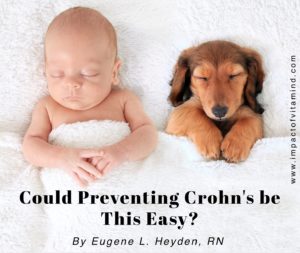Fecal Transplant in the Battle Against Ulcerative Colitis

Topic: Fecal transplant; FMT; ulcerative colitis
Last revision: 08-13-22
“Fecal microbiota transplantation is a therapeutic method via administration of fecal bacteria from a healthy individual into the intestinal tract of a recipient in order to directly change the recipient’s gut microbiota composition and confer a health benefit.” ~Qin et al., 2017
“The results were spectacular. Patients entered clinical remission immediately, remission was maintained in one case until the writing of this article and for two other cases for 10 to 12 months.” ~Laszlo et al., 2016
Of all the therapies discussed in this book, fecal microbial transplant (FMT) is perhaps the one I am most passionate about. Why? In the medical literature there is case after case of remission in ulcerative colitis using this form of therapy. And if it can happen to them, there’s a good chance it can happen to you.
The concept is simple: Stool from one individual, a healthy individual, is transferred to the gut of another individual, a sick individual, an individual like you, to confer a health benefit. No one is chuckling or cracking a joke while performing this procedure. This is serious business! He or she knows they are playing with power. I know they are playing with power. And soon, so will you.
And with that, let’s take a few minutes and go back in time.
FMT: Brief historical perspective
“The history of fecal microbiota transplantation (FMT) dates back even to ancient China. Recently, scientific studies have been looking into FMT as a promising treatment of various diseases, while in the process teaching us about the interaction between the human host and its resident microbial communities.” ~de Groot et al., 2017
In China, sometime during the 4th century AD, the recorded history of FMT began (de Groot et al., 2017). Why someone thought transferring poop from one individual to another individual would be a good idea, is still a mystery. But a thought is a powerful thing, and a medical therapy was born. And if you believe your doctor knows what he or she is doing, you’ll drink just about anything, particularly if your life is on the line. According to the historical record, the Chinese called this early form of FMT “yellow soup.” It must have tasted like crap.
Taste buds be damned, the practice caught on and began its march through the pages of history.
“By the 16th century, the Chinese had developed a variety of feces-derived products for gastrointestinal complaints as well as systemic symptoms such as fever and pain.” (de Groot et al., 2017)
I could go on and on about the “colorful” history of FMT, there are so many interesting things to discuss, but I need to move things along. However, I will add this: Be glad you don’t live in a region where camel poop is in generous supply, or it could be offered to you in your hour of need. Astonishingly, and as recently as World War II, German soldiers ate camel poop to prevent infectious gastroenteritis (de Groot et al., 2017). They learned it from the locals. It must have tasted like . . . well, you know.
Fast forward to today. Thanks to the weight of scientific evidence, including an abundance of successful case reports, there is clear justification of the use of FMT in a variety of medical conditions, including ulcerative colitis—conditions where an abnormal intestinal microflora plays a supporting and decisive role. And due to its effectiveness, FMT is currently an FDA-approved treatment for one form of inflammatory bowel disease, pseudomembranous colitis. I should tell you more.
Pseudomembranous colitis is an extremely serious medical condition caused by the bacterium Clostridium difficile (C-diff). Worldwide, it costs “over $4.8 billion per year in healthcare costs.” (Winston and Theriot, 2016) It used to kill a lot of people, and still does—to the tune of 29,000 individuals per year in the USA alone (CDC, 2017). But it doesn’t have to. FMT can stop it, dead in its tracts, and with a high probability of success.
Fecal microbiota transplantation (FMT) is a highly effective therapy of recurrent Clostridium difficile infection (CDI) with consistent disease resolution rates of 85%–90% after 1 treatment and up to 100% after a second treatment, using either fresh or cryopreserved stool from healthy, well-characterized donors. (Ott et al., 2017)
Antibiotic use in medicine gives rise to the growth of C-diff, as antibiotics kill off a lot of beneficial bacteria that ordinarily hold in check the overgrowth of this pathogen (Baktash et al., 2018; Wilson et al., 2019). C-diff is a major problem occurring in the general patient population and has apparently become more prevalent in those who suffer from ulcerative colitis (Kariv et al., 2010). And if suffering from ulcerative colitis alone wasn’t bad enough, add C-diff to the mix to see what happens. This infection can “. . . worsen UC and increase the risk for colectomy or even death . . ..” (Seicean et al., 2014)
“Oh! Let’s not get carried away, now,” seems to be the attitude of the FDA. Unacceptable to me and disappointing to many others, in 2013 the FDA declared FMT a drug and restricted its use only for the treatment of C-diff (Aroniadis and Brandt, 2014). And with that, the FDA put the brakes on the use of FMT as a treatment for ulcerative colitis. They said, in effect, “You can’t have it.” Have they not heard of your plight? Have you no right to try? Is not your microbiome disturbed way beyond belief?
The microbiome is clearly disturbed in ulcerative colitis. One clear example: “. . . FMT from UC donors to normal recipient rats triggered UC symptoms, UC-prone microbial shift, and host metabolic adaption.” (Yan et al., 2018) As to be expected, once the rats realized what was going on, they demanded FMT from a healthy human (or a healthy rat) to reverse a disease process that was hideous, unacceptable, and destroying their lives. But they were out of luck. Characteristically, the FDA said, in effect, “You can’t have it.”
And so, we have arrived at a point in history of FMT where you may need it, you may want it, you may be at the end of your rope with nowhere else to turn, but in you hour of need it is placed beyond your reach.
I get it, the thought of FMT may not be appealing to you (I’ll work on that), but it is appealing to the vast majority of ulcerative colitis patients who would jump at the chance to take advantage of this therapy (Kahn et al., 2013). To underscore,
Our patients showed that they were willing to receive this new method despite its unappealing nature, for its [sic] better to have FMT than to be tortured by the disease. (Wei et al., 2015)
And the reasons for choosing FMT, the reasons for its success, just keep piling up.
To continue reading, click this link: Fecal Transplant in the Battle Against Ulcerative Colitis Post PDF
Related posts (Click on image to open)
Topic: Fecal transplant; FMT; ulcerative colitis
References
Aroniadis OC, Brandt LJ. Intestinal microbiota and the efficacy of fecal microbiota transplantation in gastrointestinal disease. Gastroenterology & hepatology. 2014 Apr;10(4):230.
Baktash A, Terveer EM, Zwittink RD, Hornung BV, Corver J, Kuijper J, Smits WK. Mechanistic insights in the success of fecal microbiota transplants for the treatment of Clostridium difficile infections. Frontiers in microbiology. 2018;9.
CDC Nearly half a million Americans suffered from Clostridium difficile infections in a single year. 2017; https://www.cdc.gov/media/releases/2015/p0225-clostridium-difficile.html
de Groot PF, Frissen MN, De Clercq NC, Nieuwdorp M. Fecal microbiota transplantation in metabolic syndrome: history, present and future. Gut microbes. 2017 May 4;8(3):253-67.
Kahn SA, Vachon A, Rodriquez D, Goeppinger SR, Surma B, Marks J, Rubin DT. Patient perceptions of fecal microbiota transplantation for ulcerative colitis. Inflammatory bowel diseases. 2013 Apr 24;19(7):1506-13.
Kariv R, Navaneethan U, Venkatesh PG, Lopez R, Shen B. Impact of Clostridium difficile infection in patients with ulcerative colitis. Journal of Crohn’s and Colitis. 2011 Feb 1;5(1):34-40.
Laszlo M, Ciobanu L, Andreica V, Pascu O. Fecal transplantation indications in ulcerative colitis. Preliminary study. Clujul Medical. 2016;89(2):224.
Ott SJ, Waetzig GH, Rehman A, Moltzau-Anderson J, Bharti R, Grasis JA, Cassidy L, Tholey A, Fickenscher H, Seegert D, Rosenstiel P. Efficacy of sterile fecal 44 filtrate transfer for treating patients with Clostridium difficile infection. Gastroenterology. 2017 Mar 1;152(4):799-811.
Qin C, Zhang H, Zhao L, Zeng M, Huang W, Fu G, Zhou W, Wang H, Yan H. Microbiota transplantation reveals beneficial impact of berberine on hepatotoxicity by improving gut homeostasis. Science China Life Sciences. 2017 Nov 29:1-8.
Seicean A, Moldovan-Pop A, Seicean R. Ulcerative colitis worsened after Clostridium difficile infection: efficacy of infliximab. World Journal of Gastroenterology: WJG. 2014 May 7;20(17):5135.
Wei Y, Zhu W, Gong J, Guo D, Gu L, Li N, Li J. Fecal microbiota transplantation improves the quality of life in patients with inflammatory bowel disease. Gastroenterology research and practice. 2015;2015.
Wilson BC, Vatanen T, Cutfield WS, O’S’llivan JM. The super-donor phenomenon in fecal microbiota transplantation. Frontiers in cellular and infection microbiology. 2019;9:2.
Winston JA, Theriot CM. Impact of microbial derived secondary bile acids on colonization resistance against Clostridium difficile in the gastrointestinal tract. Anaerobe. 2016 Oct 1;41:44-50.
Yan ZX, Gao XJ, Li T, Wei B, Wang PP, Yang Y, Yan R. Fecal microbiota transplantation in experimental ulcerative colitis reveals associated gut microbial and host metabolic reprogramming. Appl. Environ. Microbiol.. 2018 Jul 15;84(14):e00434-18. https://pubmed.ncbi.nlm.nih.gov/29728388/
Copyright © 2020–2022 Eugene L. Heyden, RN
All Rights Reserved

Disclaimer: This article is presented solely for informational purposes. The information contained herein should be evaluated for accuracy and validity in the context of opposing data, new information, and the views and recommendations of a qualified healthcare professional, and not to be substituted for professional judgment and guidance or to provide reason to neglect or delay appropriate medical care. It is the reader and reader only who bears the responsibility for any actions that could be construed as being a response to the information contained herein. The statements and opinions expressed by the author have not been reviewed or approved by the FDA or by any other authoritative body. This article is offered to the reader to broaden his or her understanding of the issues discussed and to help identify options that may be suitable for the individual to pursue, on behalf of self or others, under approval and direction of a qualified physician or medical team member. The author and publisher offer no guarantees of the accuracy or validity of the quotations incorporated into this presentation.

